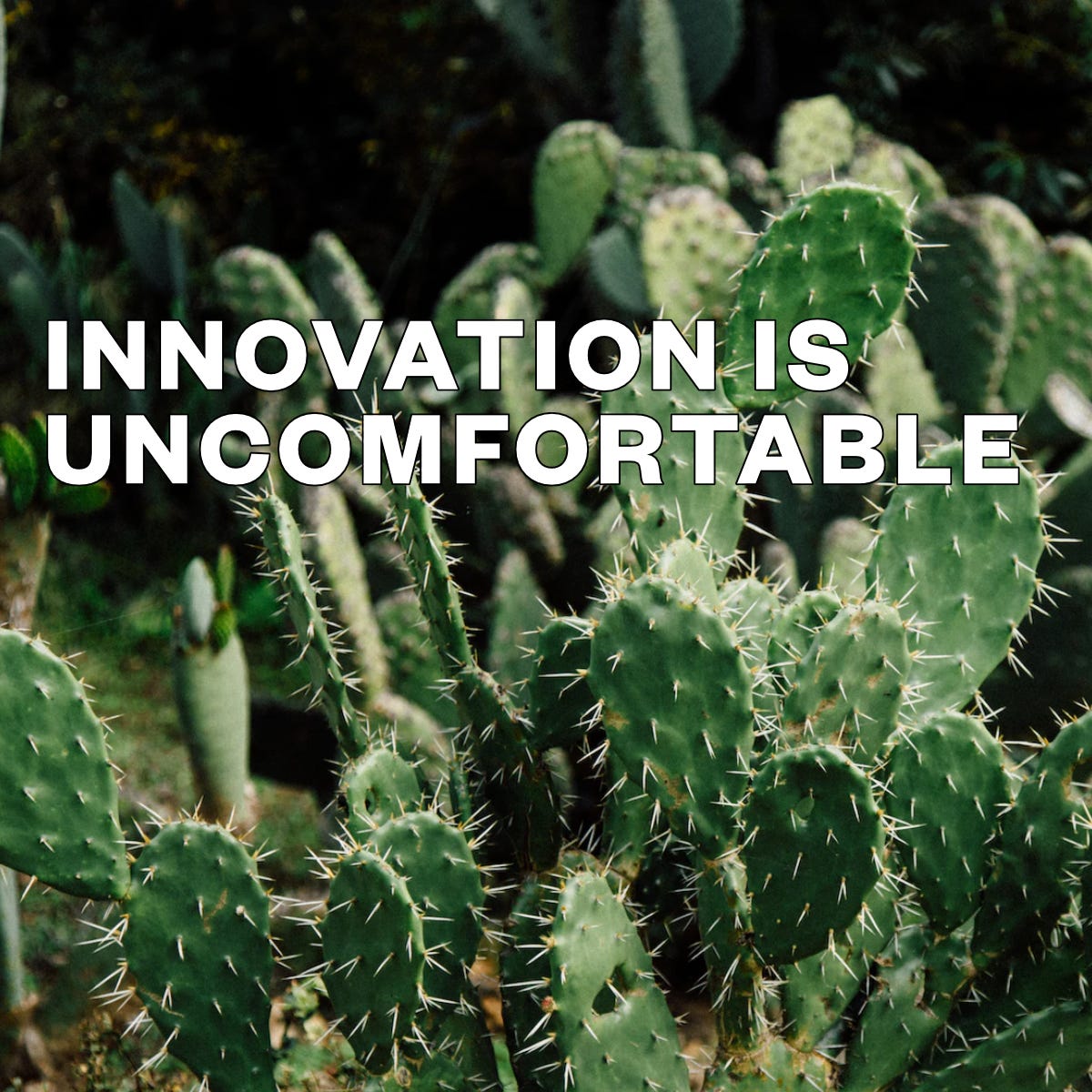Innovation is Uncomfortable
If you’re creating something new, you’re going to feel a lot of uncertainty, that’s ok.
If you are an Arsenal fan you already know about the “trust the process” cliché.
Innovation is an idea that we keep getting told in successive economic development strategies that we must embrace to grow and generate more economic value. But innovation does not come instinctively.
This is why, I think, innovation is so rewarding. Not everyone can do it.
You have to embrace the uncertainty. There are things you don’t know. That’s ok.
That does not come naturally to a lot of people who feel insecure or lack self-esteem.
You need to have belief in your ability to adapt and flex, not just your ability.
Building a team fit for innovation
This also has a bearing on your recruitment process. I’ve made this mistake in the past where I didn’t appreciate how hard it can be. We had a small team, and not enough of us really understood how hard it would be to make the project a success.
I remember one particular conversation where someone in the team asked the question “why are we even doing this, what’s the point?”
It made me wonder whether I should have seen signs earlier, or asked different questions in recruitment.
On the other side, I really appreciated the openness and candour required to ask a question like that.
When asking someone in an interview how they feel about uncertainty they’ll tell you they’re fine. The reality might be totally different, and it might not even be an experience they’ve had before in order to know one way or another.
Not everyone has the security and comfort to keep the faith through the good times and uncertain.
I talked about this a bit in the article on baking cakes. There are many more moments in an innovation process where your kitchen is a floury mess and your first attempts to bake the cake have not sold and made the few who did try them very sick.
Innovation can look quite bleak and messy when you’re in the middle of it. You don’t know whether any of this thinking will lead anywhere, you’re too entrenched to turn around, and your team are low on stamina.
The realities of projects like this are that they have ever decreasing budgets and timelines. There’s an element of brinkmanship involved in keeping your cool right down to the wire when you don’t know if you’re going to have a salary or a job in a month or two. People respond in different ways to this, don’t expect everyone to keep their cool - that is unreasonable.
You don’t need to have blind faith, but if you lose the faith and don’t believe it will succeed then the game is up.
Keeping faith doesn’t mean going along with the lemmings, but it means giving all of your heart to discovering the path that leads you through the storm, not just succumbing to it.
How do you keep the faith?
I don’t know all of the answers, but one thing I would say is that you’ve got to recognise how much people are putting into the process. Recognise small wins and hard work. Celebrate the breakthroughs, tell those stories to the wider team. Seeing this can help others see that it is worth the hard work.
Get to know the team and find out if they’re inspired or overwhelmed by the big picture. Different people are motivated in different ways, and some people just can’t get their head around some of these ideas. They don’t have to, so don’t distract them, leave them to do their bit.
Ask questions at the start about real experiences of working under pressure and with great uncertainty. You need to understand if people like the idea of all of that excitement of being a genius or whether they really understand what it will be like to feel permanently dumb.
You all have to accept that you won’t know all of the answers until the very end, and maybe even years after that.
It doesn’t matter how many times people are proven right when they keep the faith, our instincts will always tell us to run a mile and doubt from the start. It doesn’t mean those personality types are bad in innovative environments, just that they need supporting and enabling in tailor-made ways.
Create ways to make them feel valued and secure, but be honest. If they need to be looking for jobs elsewhere they need to know.



